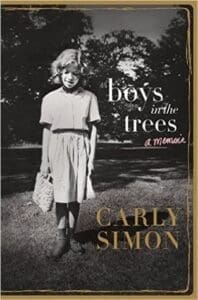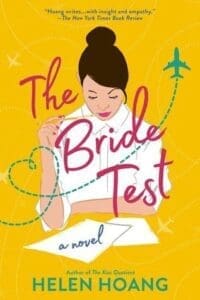The Only Woman In The Room by Marie Benedict – 243 pages
Book Blurb:
She was beautiful. She was a genius. Could the world handle both? A powerful, illuminating novel about Hedy Lamarr. Hedy Kiesler is lucky. Her beauty leads to a starring role in a controversial film and marriage to a powerful Austrian arms dealer, allowing her to evade Nazi persecution despite her Jewish heritage. But Hedy is also intelligent. At lavish Vienna dinner parties, she overhears the Third Reich’s plans. One night in 1937, desperate to escape her controlling husband and the rise of the Nazis, she disguises herself and flees her husband’s castle. She lands in Hollywood, where she becomes Hedy Lamarr, screen star. But Hedy is keeping a secret even more shocking than her Jewish heritage: she is a scientist. She has an idea that might help the country and that might ease her guilt for escaping alone — if anyone will listen to her.
My Review: 3.5 stars – Guest Review
The Only Woman In The Room is a fictionalized account of the incredible life of the well known stage and screen actress Hedy Lamarr. The book covers Hedy Lamarr’s life from 1933 to 1942. The first part of the book is set in pre-World War II Austria where Hedwig Kiesler (Lamarr) is forced into a marriage with Fritz Mandl, an infamous Austrian arms dealer who sold weapons to Mussolini and Hitler. The second part of the book follows Lamarr’s life after she escapes to Hollywood and establishes herself as a famous screen star. Prior to reading this book, I only knew that Hedy Lamarr was a glamorous Hollywood star who was also known for her beauty. The author brings to light another side of Hedy Lamarr that most people were unaware of.
The book is told from Hedy’s perspective. The author’s in-depth research is evident as she delves into the inner life of this fascinating, complex, and inspirational woman. I was drawn into the lengthier first section of the book, which covers Lamarr’s life in Austria, and her marriage to a controlling man, who only wanted her to play the “role” of his wife, due to her beauty. The first part includes an abundance of historical detail, with references to many historical figures leading up to World War II. The characters came to life, particularly Hedy’s mother and father. I felt fear and dread as I read about Fritz Mandl. I admired Hedy, as she “played the part” of the trophy wife, hiding her intellect and using her beauty and charm with men to gain knowledge about Hitler’s plans.
The second part of the book follows Hedy’s career as a movie star in Hollywood after she escapes from Austria. This half of the book is shorter and does not go into as much detail as the first half. I was more invested and interested in the first part of Hedy’s story. In the second part of the book there are many references to famous Hollywood movie makers and actors. The details about Hedy’s life as a scientist and her invention wasn’t totally convincing. The story suddenly jumps from Hedy’s life as an actress, to her inventing the system of “spread spectrum” technology, in order to end WWII more quickly. This invention was a precursor for the modern day cell phone, wifi, GPS, and Bluetooth technology. Since this happened so quickly in the book, and was somewhat glossed over, I was slightly unsure of how Hedy became an inventor. I would like to have read more about the process of the invention and its aftermath. In a detailed and interesting “Afterward”, the author explains that the time period and scope of the novel didn’t allow her to delve into the second part of Hedy’s life as much as the first.
The author effectively paints a portrait of a famous woman who had two very different sides to her. I admired her fight to become more than just a pretty face. There are many parallels that can be drawn between the misogyny depicted in this book and what exists in our current society. Due to the marginalization of women, Hedy’s intelligence was dismissed, and her invention was ignored for many decades. Although the story moves slowly in some parts, the author’s writing gives the reader an understanding of the inner life of this complex and enigmatic movie star. Review by Guest Fairy Ronna.
Quotes I liked:
I had always been alone under my mask, the only woman in the room.”
“…….acting became my way of moving through the world, a sort of currency upon which I could draw whenever I needed. I could become whatever those around me secretly longed for, and I, in turn, got whatever I wanted from them.”
“Fritz allowed me to remain at the table because I’d become like one of the Rembrandts on the wall of the antique Meissen porcelain on the sideboard. Simply another priceless, inanimate decoration for Fritz to display, a symbol of his wealth and prowess.”
From the afterword: “…….But unless we begin to view historical women through a broader, more inclusive lens – and rewrite them back into the narrative – we will continue to view the past more restrictively than it likely was, and we risk carrying those perspectives into the present.”


















